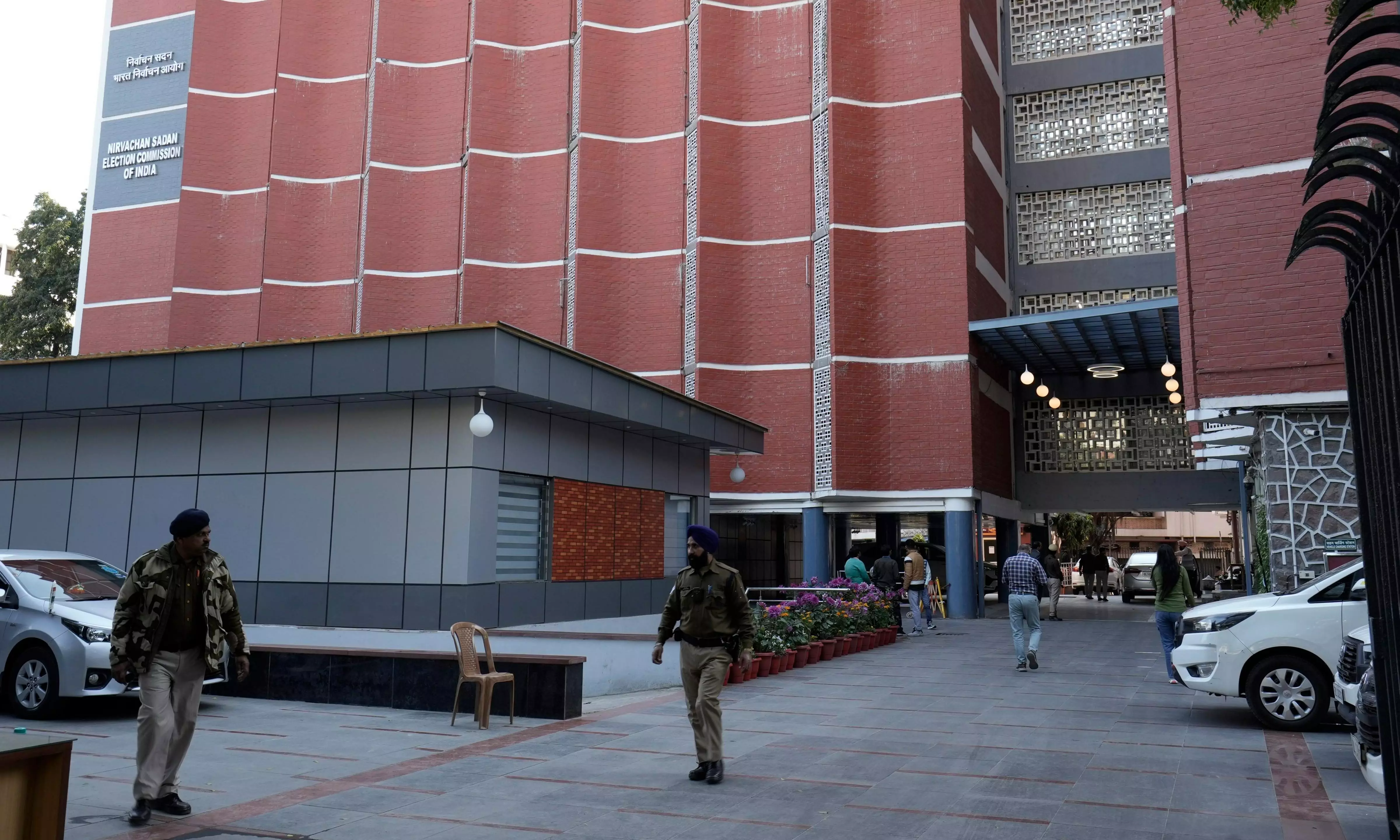
On Rahul’s ‘match is fixed’ allegation over CCTV footage demand, EC cites voter privacy
The state poll officers have been instructed by the EC to destroy CCTV, webcasting, and video footage of the elections after 45 days

The Election Commission of India (EC) on Saturday (June 21) cited voter privacy and legal issues for its decision to destroy CCTV, webcasting, and video footage of the elections after 45 days.
The EC’s response came after Congress leader Rahul Gandhi on Saturday accused the poll body of “deleting evidence” when it was required to “provide answers”.
Also read: EC: 'Malicious narratives' being spread using our video footage
The state poll officers have been instructed by the EC to destroy CCTV, webcasting, and video footage of the elections after 45 days if the verdict is not challenged in courts within that period, saying it feared the use of its electronic data to create “malicious narratives”.
Rahul’s ‘match is fixed’ allegation
Questioning this move, Rahul, the Leader of the Opposition in Lok Sabha, alleged “match-fixing”.
“Voter list? Will not give machine-readable format. CCTV footage? Hidden by changing the law. Election photos and videos? Now they will be deleted in 45 days, not 1 year. The one who was supposed to provide answers - is the one deleting the evidence. It is clear that the match is fixed. And a fixed election is poison for democracy,” Rahul posted in Hindi on his X (formerly Twitter) handle.
Also read: ‘Evasion won’t protect credibility’: Rahul hits back at EC after denial of poll ‘rigging’ charges
Rahul has been demanding voter lists, poll data, and video footage from the election commission, alleging irregularities in the Maharashtra Assembly elections.
What EC said
The EC cited the Representation of the People Act to not make CCTV footage of polling booths public.
“What is veiled as a very logical demand is actually entirely contrary to the privacy and security concerns of the voters, legal position laid down in the Representation of the People Act, 1950/1951 and the directions of the Supreme Court of India,” the EC said, according to reports.
Also read: First time in 2 decades, EC holds revision of voters' list for bypolls
It also said sharing of the footage would lead to voters being vulnerable to “pressure, discrimination and intimidation by anti-social elements”.
“Sharing of the footage, which would enable easy identification of the electors by any group or an individual, would leave both the elector who has voted as well as the elector who has not voted vulnerable to pressure, discrimination and intimidation by anti-social elements,” it added.
Further, it said, “Polling day videography records the sequence of voters entering the polling station and their identities, similar to Form 17A, which contains sensitive information about voters, including their ID details and signatures. Both pose a risk to voting secrecy.”
EC’s letter to poll officers
In a letter to state chief electoral officers on May 30, the EC said it has issued instructions for recording various stages of the election process through multiple recording devices – photography, videography, CCTV, and webcasting during the election process.
Also read: BJP calls Rahul Gandhi 'traitor' after his 'EC compromised' remark in US
While electoral laws do not mandate such recordings, the commission uses them as an internal management tool during various stages of the electoral process.
“However, the recent misuse of this content by non-contestants for spreading misinformation and malicious narratives on social media by selective and out-of-context use of such content, which will not lead to any legal outcome, has prompted a review,” it said.
One can challenge poll verdict within 45 days
It has now told its state poll chiefs that the CCTV data, webcasting data, and photography of election processes at various stages will be preserved for 45 days.
“If no election petition is filed in respect of a particular constituency, then the said data may be destroyed,” it instructed.
Any person can file an “election petition” challenging the poll verdict in the concerned high court within 45 days.

